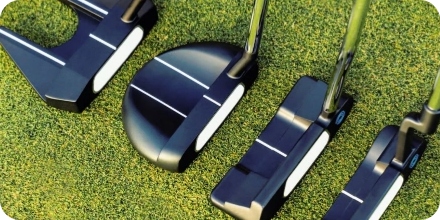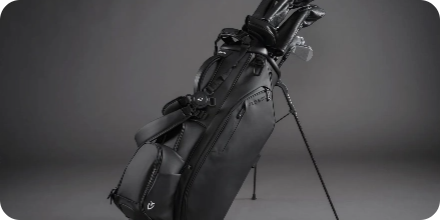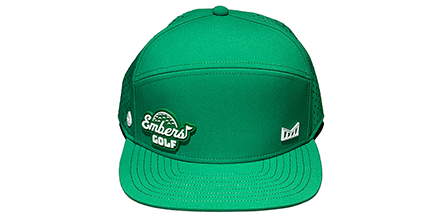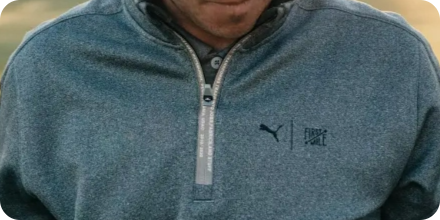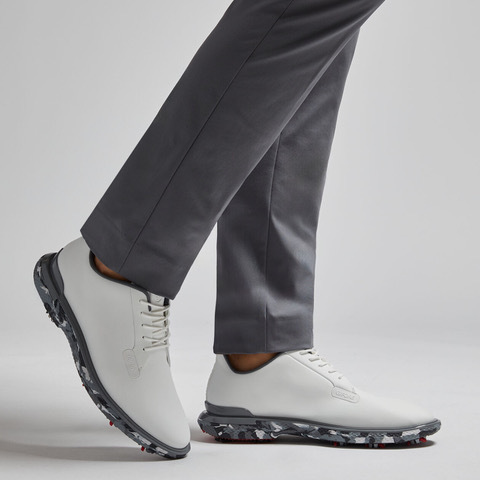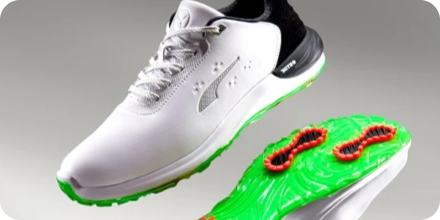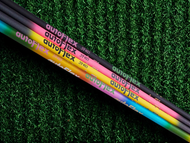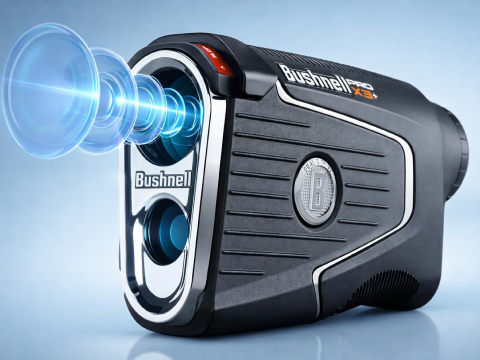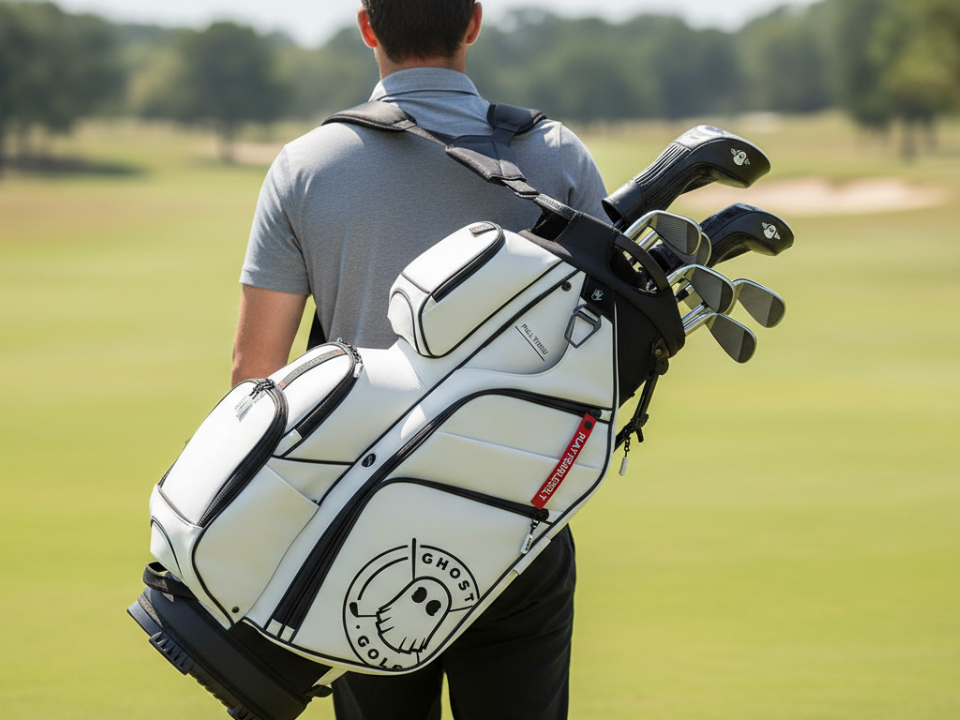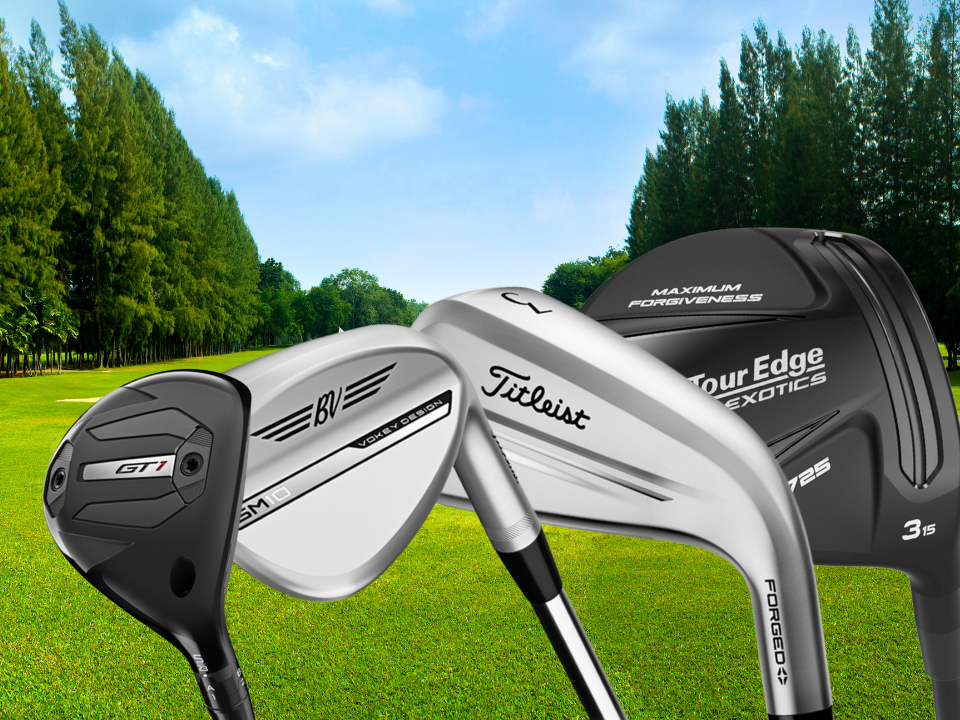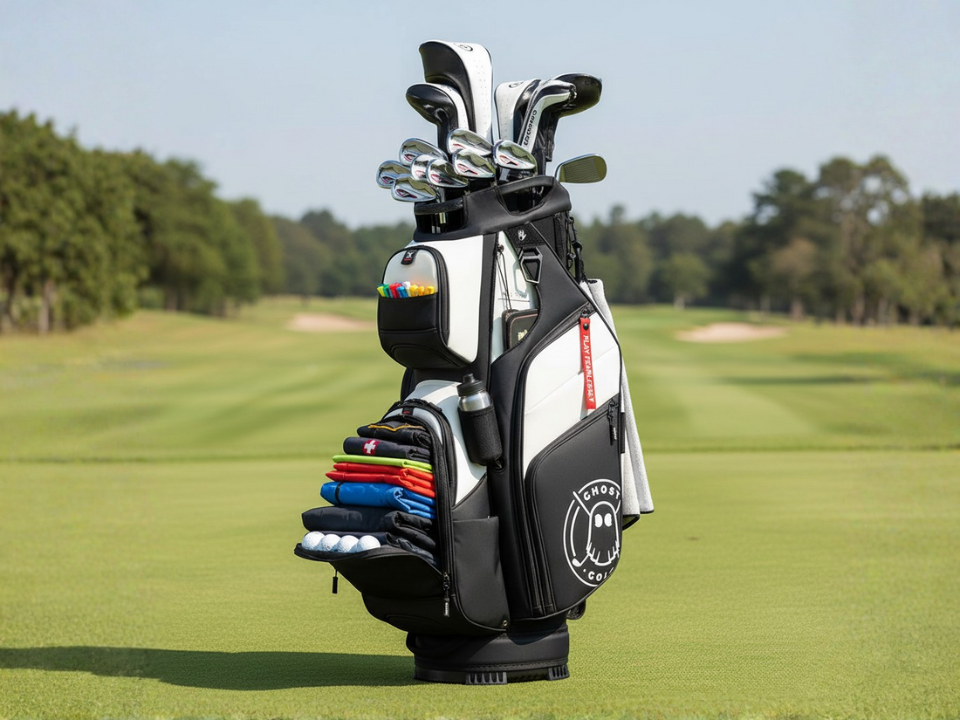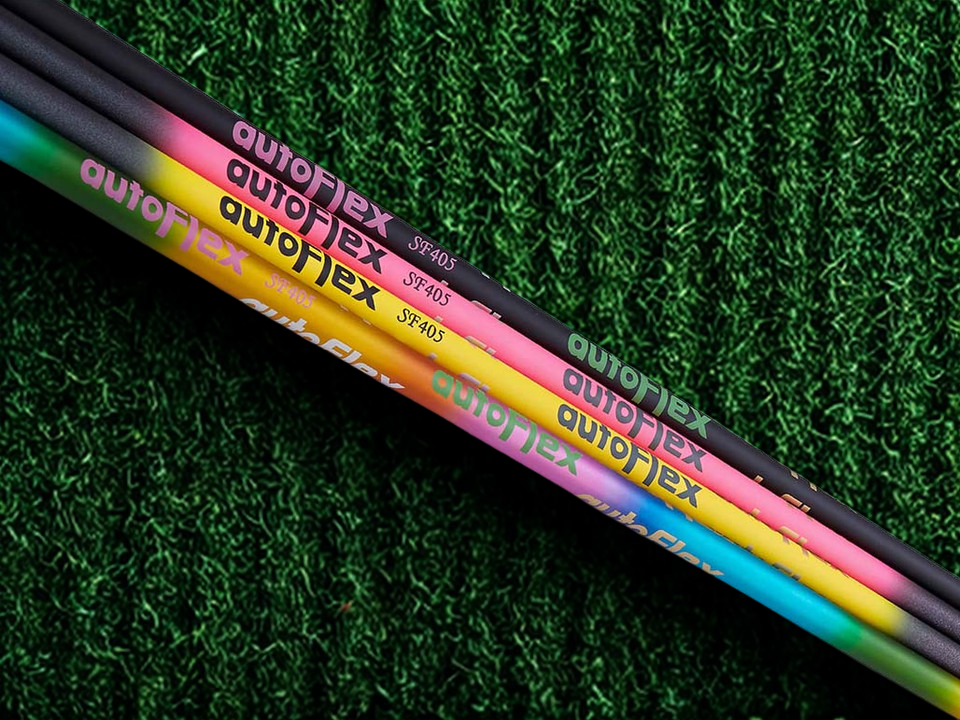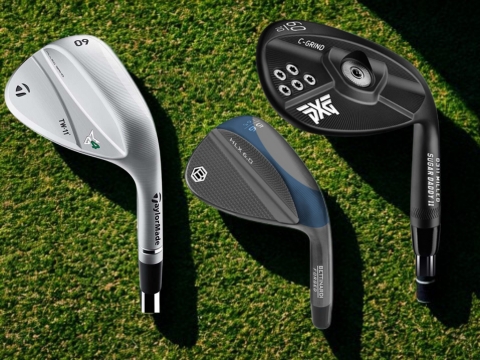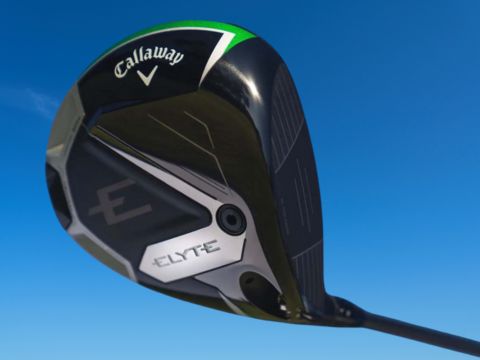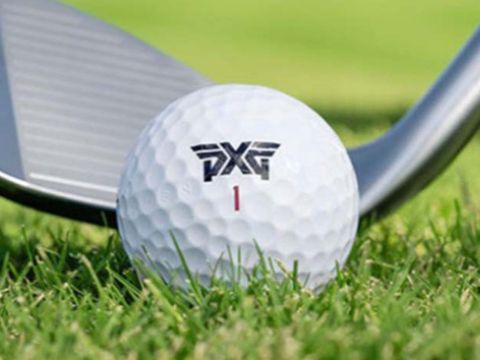How to Choose the Golf Shafts for Your Swing
Posted by Tayte Andruss on Oct 8th 2025
Golf is a sport that is all about precision, technique, and knowledge of the equipment that you are using. One of the key but less-examined elements of your golf clubs is the shaft. Golf clubs are so crucial to your performance out on the course that they determine everything from the accuracy of your shots to the length that you are able to hit. Regardless of whether you are an amateur player or an expert player, it is crucial that you choose an appropriate golf shaft.
In this article, we will reveal how you can pick out the best golf shafts for your swing. We will go over the role of shaft flex, material, weight, length, and torque. We will go over the role of shaft flex, material, weight, length, and torque. We will also mention the necessity of having a custom fit and why it is so crucial that you get the right shaft fitted for your swing. With the right knowledge and guidance, you will be able to make an informed decision that will enhance your golf game and enable you to play the best golf of your life.
Why Golf Shafts Matter
The golf shaft is often referred to as the “engine“ of the golf club. Even as the clubhead might steal all the limelight, it is the shaft that takes the energy your swing is providing and directly imparts it to the golf ball. It is largely responsible for controlling the flight of the ball and the length, accuracy, and consistency it provides. A properly fitted golf shaft will have you hitting the ball much more consistently, and you will be in control of shots much better.
Most golfers do not know the degree to which one piece alone, namely the shaft, can influence one’s game. In fact, there are so many amateur golfers employing the wrong golf shafts, and it is limiting their potential on the golf course. It is suggested in research that as few as 20% of golfers are employing the right shafts in clubs. This means that roughly 52.8 million golfers are employing the wrong shafts without their knowledge, and it will have a huge effect on their performance.
Determining Golf Shaft Flex
When purchasing golf shafts, one thing you will undoubtedly hear is the mention of “flex.” Shaft flex is the amount that the shaft flexes with your swing. It is one of the most important things you must decide upon when choosing the right shaft, as it literally dictates the entire club's performance. You have an assortment of flexes in the types of shafts, including:
- Women’s Flex (W)
- Senior Flex (A)
- Normal Flex (NF)
- Stiff Flex (S)
- Extra Stiff Flex (X)
Your flex will determine the amount of bending and rebounding of your downswing shaft. Your swing speed is much too quick for a stiffer flex, and the club won’t load, and you will miss out on distance and control. You might receive erratic shots, including hooks and slices, if your flex is too weak.
The most frequent error made by golfers is selecting a flex in the shaft that is stiffer than their swing. Pride is often the determining factor, as golfers will believe that their swing requires a stiff shaft so that friends back on the home course will think that they are a better player. In reality, the speed of your swing dictates what flex is required. For instance, visiting a golf store or consulting with experts can help you find the right flex tailored to your swing, ensuring better performance on the course.:
- Swing Speed Below 85 mph: You need a Ladies Flex or a Senior Flex shaft if your swing speed is below 85 mph.
- Swing Speed Between 85–95 mph: It is ideal for swing speeds ranging between 85–95 mph.
- Swing Speed Between 95–110 mph: At swing speeds in between, stiff flex shafts are best.
- Swing Speed Over 110 mph: With a swing speed over 110 mph, you need an Extra Stiff Flex shaft.
We have a wide variety of shafts, including golf driver shafts and golf putter shafts along with other golf club shafts, according to swing speeds and swinging patterns. Our experts are never out of touch and are ready to assist you in choosing the right flex based on your requirements.
Shaft Materials: Steel and Graphite
Steel
The other major factor one needs to consider in selecting the golf shafts is the type of material the shaft is constructed with. Golf shafts are normally constructed with either graphite or steel. There are pros in each material type, and each is best suited according to one's playing type, swing speed, and personal preference.
- Graphite Shafts: Graphite is less dense than steel, so it will contribute more clubhead speed. This is especially beneficial in drivers and fairway woods, where gaining distance is the object. There are very advanced modern graphite shafts out there that are specifically designed with a stable feel, although there is still that lightweight, responsive motion. An example is the Fujikura Ventus Blue shaft, available in varying weights (50 grams and up to 90 grams), and applicable for a vast number of golfers.
- Steel Shafts: Steel is a sturdier material than graphite and can provide greater control and stability. Steel shafts are also common in wedges and irons, where clearance and precision become paramount. Steel is stable and consistent, and most golfers favor it in their iron shots. True Temper Project X and Dynamic Gold are some of the high-performance steel shafts, and they can provide unparalleled control.
Both types have their pros, and selecting either is simply a matter of your playing technique. Lighter shafts are preferred for golfers requiring greater clubhead speed, while heavier shafts are more about control and consistency. Embers Golf stocks an extensive variety of both graphite and steel shafts so that you may get the one best suited for your game.
The Importance of Shaft Weight
Shaft weight is another important factor to consider when choosing golf shafts. Lighter shafts allow for faster swings and greater clubhead speed, which can result in more distance. On the other hand, heavier shafts provide more control and stability, especially when you’re aiming for precision.
- Lighter Shafts: A lightweight shaft is best suited for slower swing speed golfers who require greater clubhead speed. It is also best for swing-fatigued players as lightweight shafts are less fatiguing and make it easier to swing for long hours. Lighter-weight graphite shafts are common in drivers and fairway clubs for long distances.
- Heavier Shafts: Heavier shafts are very stable and controlling and are best suited for golfers with high swing speeds. You may want a heavier steel shaft if you need greater control over shots and consistent ball hitting.
Shaft Length and Torque: Small Differences with Great Impacts
The length of your golfing shaft is capable of making a major difference in your performance. A long shaft is capable of providing more speed to the clubhead, but it may also influence being less accurate and less consistent. A shorter shaft offers a person greater control but may decrease the speed of the swing.
- Shorter Shafts: Shorter shafts are beneficial for golfers who are accurate with the ball as it makes it even simpler to hit the center of the clubface. They are also better for greater control and consistency. Golfers may, however, lose a slight distance with shorter shafts and need to strike a balance depending on what they prefer.
- Longer Shafts: Golfers with slower clubhead speeds and less distance are best served with longer shafts. They could lead to inconsistent ball and face contact; however, if the golfer is not up for the added length. You must find one that is long enough to compensate for your swing and playing abilities.
Shaft Torque: What Degree of Flex Do You Permit?
Torque is how much the shaft rotates during your swing. With a lower torque specification, there is less rotation, and you control it much better, which is preferred by golfers with faster swing speeds. Greater torque is less stiff and preferred by golfers with slower swing speeds, as it allows for better angles and ball flight.
- Low Torque: A low-torque shaft is best suited for fast swing speeders and those requiring a stable shaft that does not induce untoward twisting while downswinging.
- High Torque: It is a very forgiving shaft and is sought after by golfers with slower swing speeds who require an extra “kick“ out of a shot.
The Advantages of Custom Fit
Probably the best thing you can do to ensure you're using the top golf shafts for your game is with a custom fit. Embers Golf makes custom fits with the latest technology, including launch monitors, that track your swing and recommend the ideal shaft for you. A custom fitting takes into account factors such as:
- Swing Speed: Offers the appropriate shaft flex.
- Spin and Launch Rates: Selects the best shaft for your launch conditions.
- Strike Consistency: Keeps the shaft parallel with your ballstriking. You will find the perfect shaft for swing speed, playing stance, and body with the advice of an expert fitter. It will allow you to gain greater distance, precision, and consistency.
Final Takeaway
Selection of the best golf shafts for your swing is a crucial part of improving your golf performance. Knowing the major determiners of shaft performance, including flex, material, weight, length, and torque, allows you to intelligently decide between golf shafts and wind up with improved performance on the golfing field. Custom fitting is the best way of ensuring that you are using the finest shafts for the job. Whether you’re an old pro or a beginner, getting your shafts fitted is going to have a huge effect on your game. Embers Golf carries a large selection of major manufacturer golf shafts, and it offers custom fitting services so that you can determine the perfect one. Look through our array of golf club shafts, golf driver shafts, golf putter shafts, and more, and take one step closer to improving your golf game. When it comes to adding extra distance, becoming a better player as far as accuracy, or improving your consistency, the ideal shaft is what enables you to achieve your full potential out on the green. Choose Embers Golf and find that perfect shaft for your swing.
FAQs
What is the best golf shaft for distance?
The best golf shaft for distance typically depends on your swing speed and playing style. For faster swing speeds, a stiff or extra stiff flex with a graphite shaft will help maximize clubhead speed and distance. For slower swing speeds, a regular or senior flex graphite shaft can offer more distance by providing extra “kick“ during the swing.
How do I know if I need a stiffer golf shaft?
If your swing speed is above 95 mph, you may benefit from a stiff or extra-stiff flex shaft. If you're hitting shots that lack control or consistency, or if your shots tend to veer right (for right-handed golfers), it could be a sign that your shaft flex is too weak.
What does custom fitting do for my golf shafts?
Custom fitting ensures that your golf shafts are tailored to your specific swing characteristics, such as swing speed, launch angle, and consistency. It helps improve accuracy, consistency, and distance by selecting the right shaft flex, material, and weight for your game.



